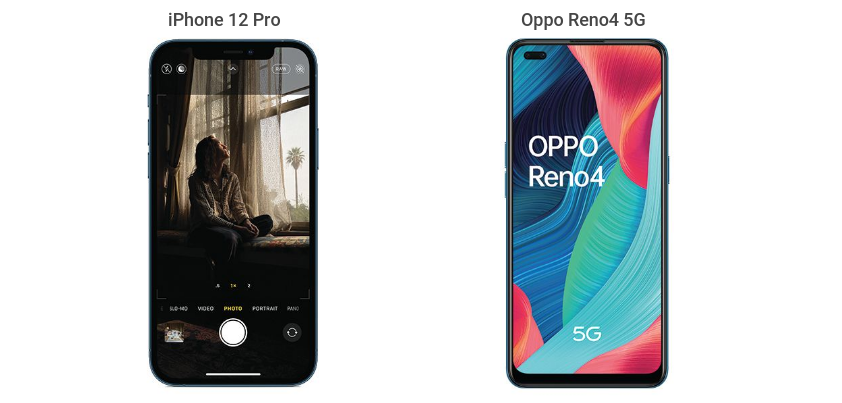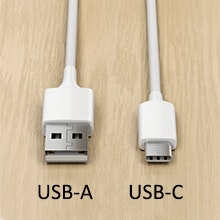I took the iPhone 12 Pro and Oppo Reno4 5G and put them through their paces. They’re both high-end, high-specced phones, so take as read their sharp displays, speedy processors and great ease of use.
In general, the iPhone is better than the Oppo, but is it $900-better?
What’s the difference between them?

Obvious differences aside (one’s an iPhone, one’s an Android) there’s not a lot separating them from a technical standpoint. They even both have cameras that stick out from the back and make the phones wobble on a flat surface.
You could argue about the chipsets and how the systems handle image processing from the cameras, but they’re much of a muchness. One large point of difference is the lack of waterproofing on the Oppo, while Apple has increased the rating on the iPhone to IP68.
How fast are they on 5G?
Really fast! Speed tests on the Vodafone 5G network show speeds more than twice that when the phones are on the 4G network.
Which makes sense. 5G means “5th generation”, and each generation of mobile technology has been substantially faster. The question you need to think about is “what am I going to use that speed for?” It’s like owning a Bugatti and having to stick to the 100km/h speed limit.
There are some tasks where this speed is useful. For example, streaming a movie on Netflix I was able to scrub through and have it immediately play at full quality wherever I resumed watching.
I also downloaded a movie from Netflix on to the Oppo in 48 seconds. This isn’t something you’d normally do, as it would eat all your mobile data (even the Netflix app suggests doing it over WiFi), but it’s a good demonstration of how fast 5G is.
This technology is going to come into its own over the next few years, when we’ll be interacting with more and more smart devices. 5G enables lower latency communication with them, which is important.
Imagine a phone call with someone on the other side of the world – latency is the delay between you saying something and them hearing it. 5G makes that delay very small. That’s really good for devices your phone is talking to, because it means if you press a button on your phone it almost immediately registers on the device.
Power to the people
Apple’s recent push to decrease its environmental footprint hit a small snag with its iPhone 12 launch. Like the Apple Watch 6, the iPhone 12 ships without a charging adapter in the box.

The reasoning is that there are already millions of these floating about, so you don’t need a new one. Which sounds fine for some people; I have quite a few floating about my house that I use to charge headphones and tablets.
The problem is the iPhone 12 ships with a Lightning-to-USB-C cable, and the chargers most people have are USB-A (the rectangular one we’re all used to), which isn’t compatible. USB-C is still fairly new and hasn’t been widely adopted yet. This meant some consumers had no way to charge their new phone straight out of the box.
We applaud Apple’s efforts to curb the amount of wastage that goes into making and distributing its products. However, this attempt may have more negative environmental effects as users may have to buy and ship extra chargers.
First Looks are trials of new and interesting products from the perspective of our product experts. Our lab-based tests offer truly objective product comparisons.
These phones were loaned to the writer by Oppo and Apple.